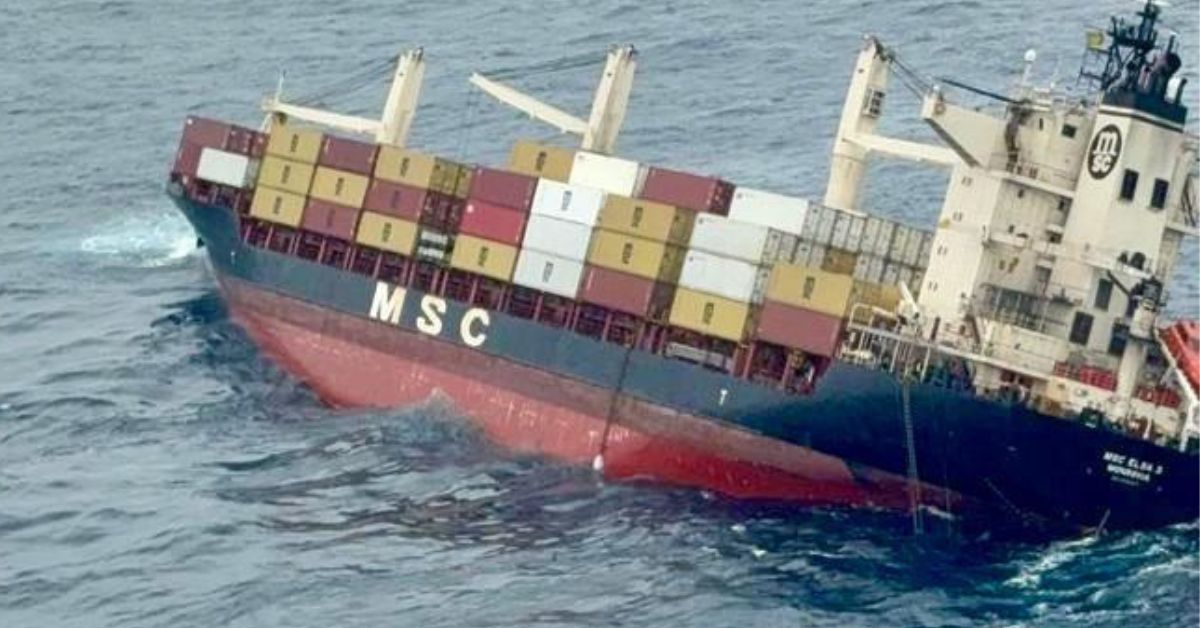The Liberian-flagged MSC ELSA 3 capsized and sank off the coast of Kerala on May 25. India is targeting ships registered under so-called Flags of Convenience (FoC) regimes, claiming that the country must demand stricter international regulation of FoC regimes through the International Maritime Organization (IMO) in order to hold them responsible.
India’s reliance on ships registered in FoC regimes for over 97 per cent of its export-import (EXIM) trade has quietly but alarmingly evolved into a critical vulnerability. It is a hidden risk in India’s maritime trade due to our weak leverage over FoC vessels.
The FoC vessels, typically registered in jurisdictions such as Liberia, Panama, and the Marshall Islands, promise cost-efficiency and operational flexibility. But, behind this apparent commercial advantage lies a systemic erosion of regulatory oversight, accountability, and maritime sovereignty. The recent MSC ELSA 3 disaster off the Kerala coast offers a chilling illustration of the dangers embedded in this dependence.
To be sure, FoC registries are widely used in global shipping, accounting for nearly 76 per cent of the world’s merchant fleet by deadweight tonnage or DWT. These registries typically offer lax regulatory environments, permitting shipowners to circumvent stringent labour laws, environmental obligations, and safety protocols.
A vessel owned in one country, operated from another, and flagged in a third, with little to no regulatory coherence between them, is increasingly the norm. India, which depends on such ships for an overwhelming majority of its international trade, has little say in their operation or safety standards.
When things go wrong, as it did with the MSC ELSA 3, the costs are borne not by the flag states, but by coastal nations. The Liberian-flagged ELSA 3 had a murky record: multiple name changes, a long list of port state deficiencies, and a cargo manifest including 12 containers of calcium carbide, a highly dangerous substance.
After the vessel capsized, Liberia, the flag state, refused to participate in the investigation. While technically permissible under the United Nations Convention on the Law of the Sea (UNCLOS), such non-participation exposes the glaring shortcomings of the FoC model.
Such a lopsided burden-sharing structure is deeply problematic for a country like India, which is aspiring to be a global maritime hub and a responsible coastal state. FoC ships are frequently crewed by underpaid, undertrained personnel from multiple nationalities, making enforcement of labour standards and safety training extremely difficult.
Several reports have flagged discrepancies in crew competency, falsified certifications, and weak safety cultures aboard such ships. Indian Port State Control inspections frequently cite such issues, but with limited capacity and jurisdiction, enforcement is often superficial.
India’s dependence on FoC ships also means a diminished role for its domestic shipping industry, weakening the strategic and economic resilience of the nation. At a time when geopolitical and climate risks are rising, this lack of sovereign control over vessels operating on national trade routes is a strategic liability.
India must call for tighter international regulation of FoC regimes through the IMO and allied maritime conventions. The current overdependence on FoC ships may appear economically expedient, but it is strategically reckless and environmentally dangerous.









